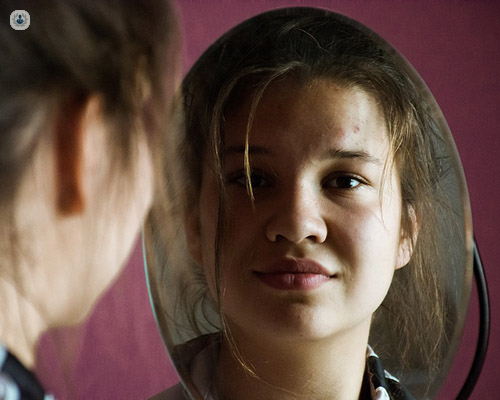How can acne be prevented?
Written in association with:Acne is a prevalent skin condition affecting millions of people globally, particularly teenagers and young adults. It appears as pimples, blackheads, whiteheads, and cysts, mainly on the face, chest, and back. Understanding its causes, treatment options, and prevention strategies is crucial for managing and mitigating its effects. Here to explain more about the skin condition is revered consultant dermatologist, Dr Iaisha Ali.

How does acne occur?
Acne occurs when hair follicles become clogged with oil (sebum) and dead skin cells. Several factors contribute to this process. Hormonal changes, especially during puberty, menstruation, and pregnancy, can increase sebum production, leading to acne. The skin naturally harbors bacteria, but an overgrowth of Propionibacterium acnes (P. acnes) can exacerbate inflammation and cause acne.
Some studies suggest that diets high in refined sugars, dairy products, and fast foods may trigger or worsen acne. Stress can also increase hormone levels that promote oil production, making acne worse. Additionally, genetics play a role, as a family history of acne can predispose individuals to develop the condition.
How is acne treated effectively?
Effective acne treatment often requires a multifaceted approach. Over-the-counter topical treatments containing benzoyl peroxide, salicylic acid, or alpha hydroxy acids can help unclog pores and reduce bacteria. Prescription-strength topical retinoids and antibiotics may be necessary for more severe cases. For moderate to severe acne, doctors may prescribe oral antibiotics to reduce bacteria and inflammation.
Hormonal treatments, such as birth control pills or anti-androgens, can help regulate hormones. Maintaining a gentle skincare routine, avoiding heavy makeup, and not picking at acne can prevent further irritation. Additionally, a balanced diet and stress management techniques, like yoga or meditation, may help.
How is acne prevented?
Preventing acne involves consistent skincare and healthy habits. Regularly cleansing the face twice daily with a mild cleanser to remove excess oil and dirt is essential. Avoiding touching the face can prevent the transfer of oil and bacteria to the skin, reducing the risk of breakouts.
Choosing skincare and makeup products labeled as non-comedogenic, meaning they won’t clog pores, is crucial. Staying hydrated by drinking plenty of water helps keep the skin healthy. Incorporating fruits, vegetables, and whole grains into the diet supports overall skin health.
Understanding acne and adopting appropriate treatments and preventive measures can significantly improve skin health and boost confidence. If over-the-counter options are ineffective, consulting a dermatologist for personalised care is advisable.


